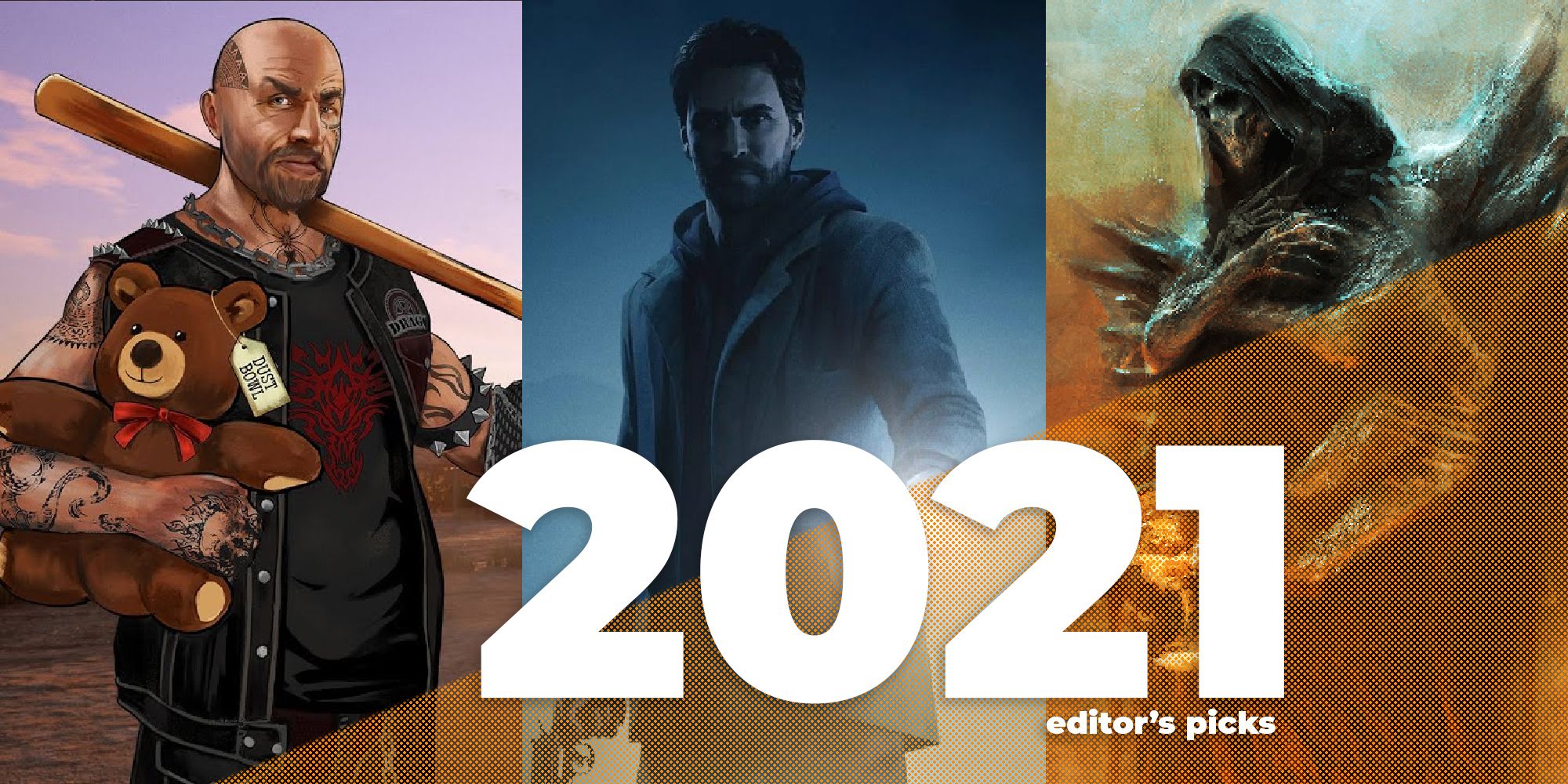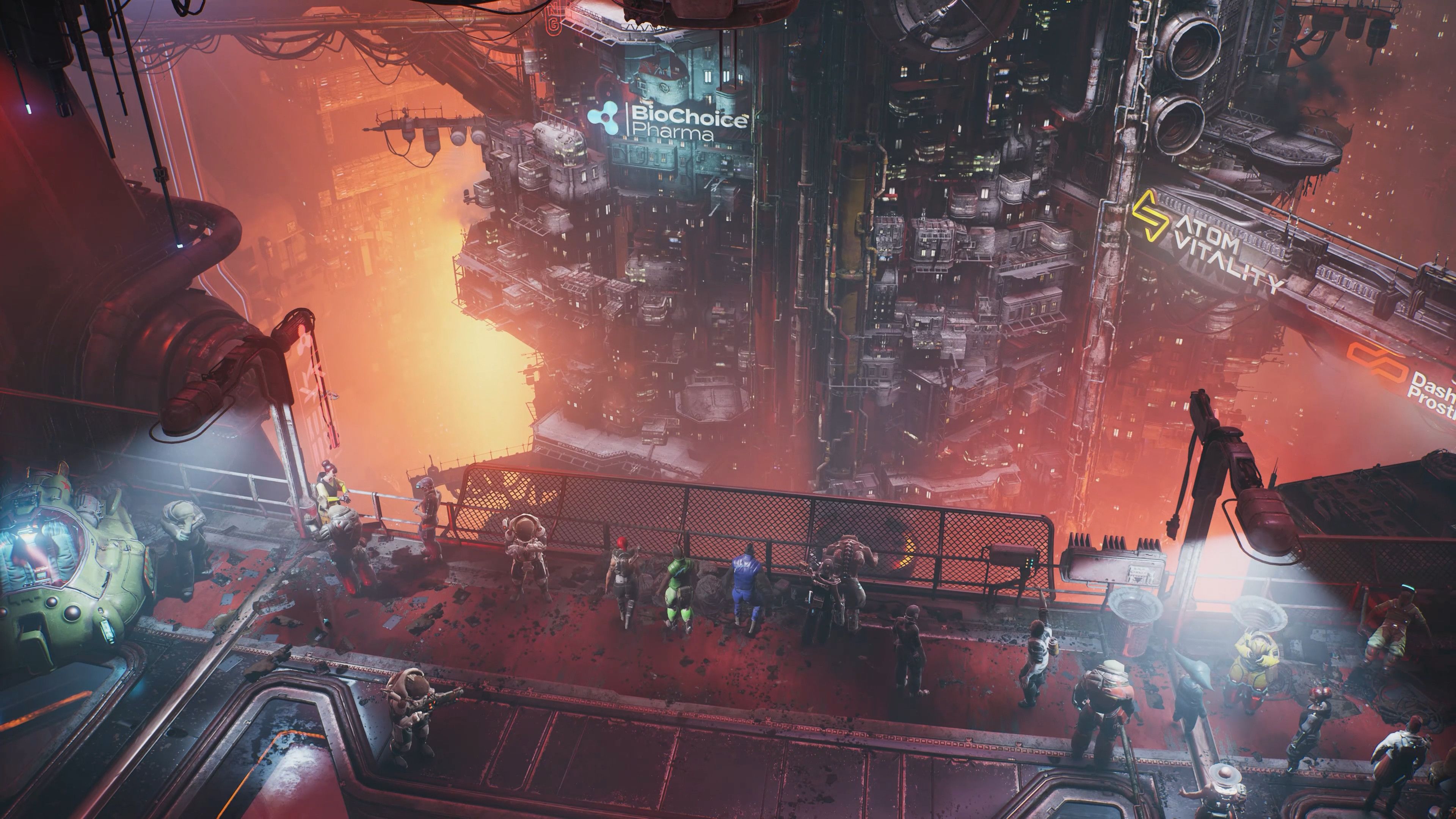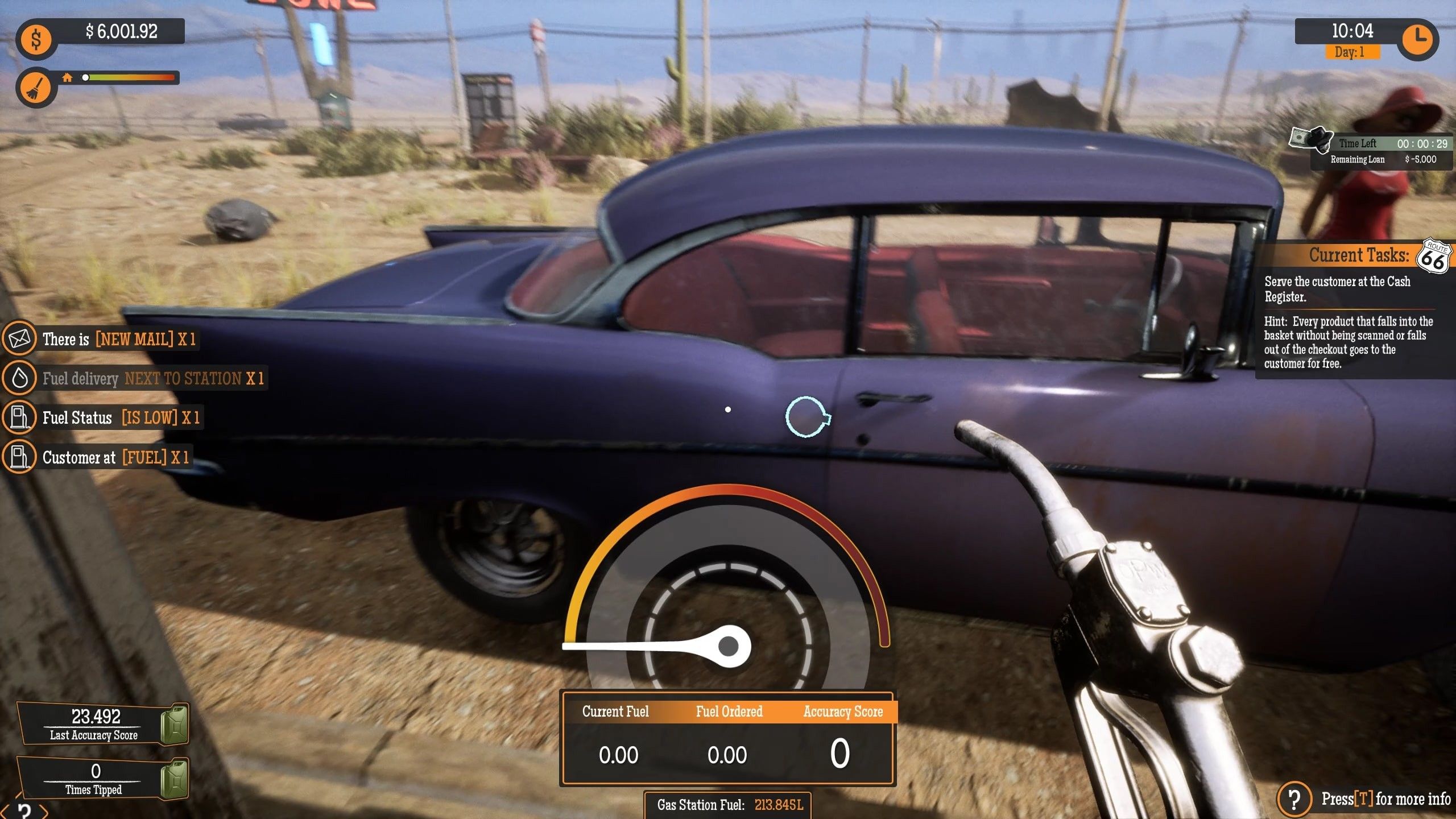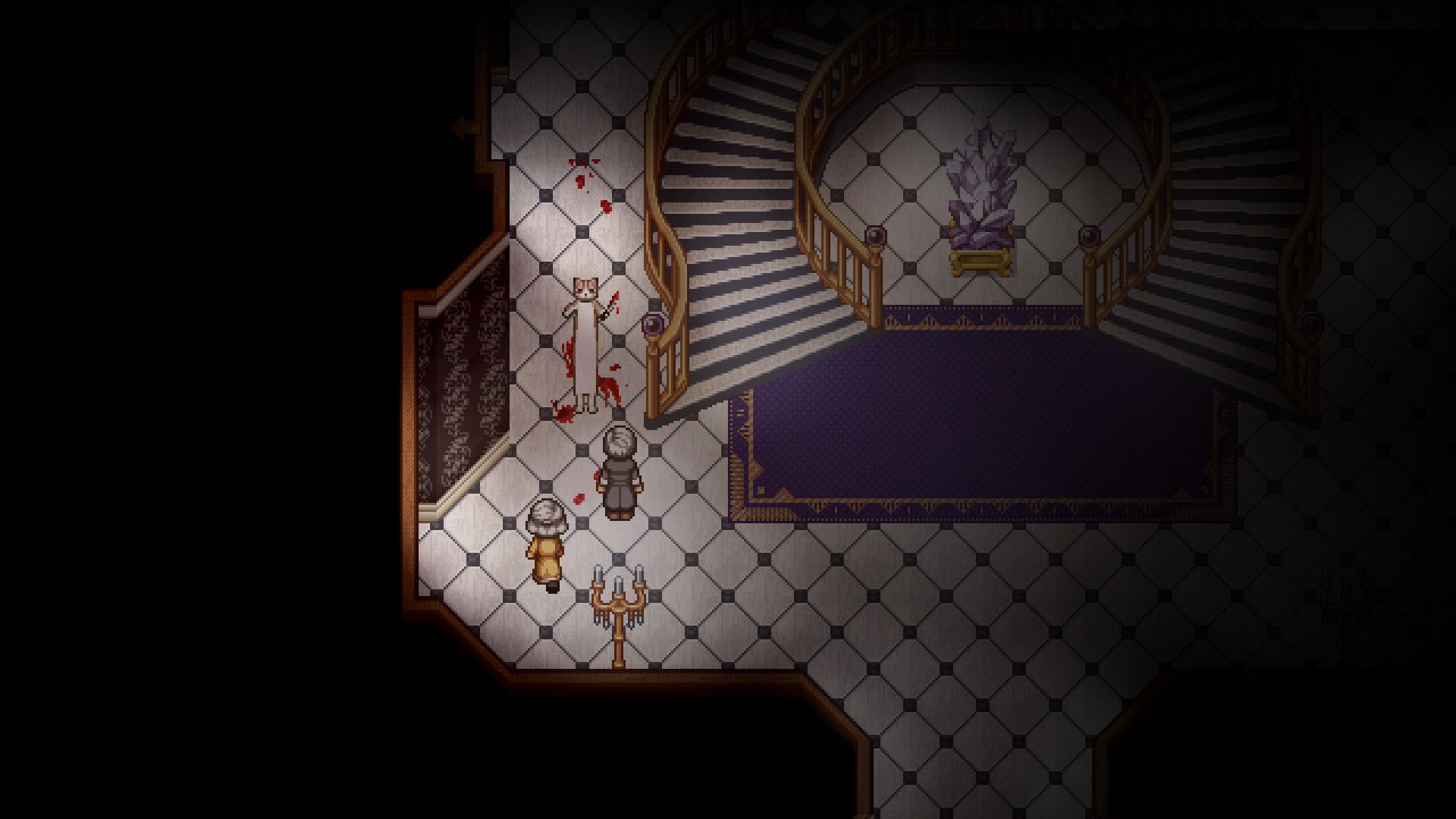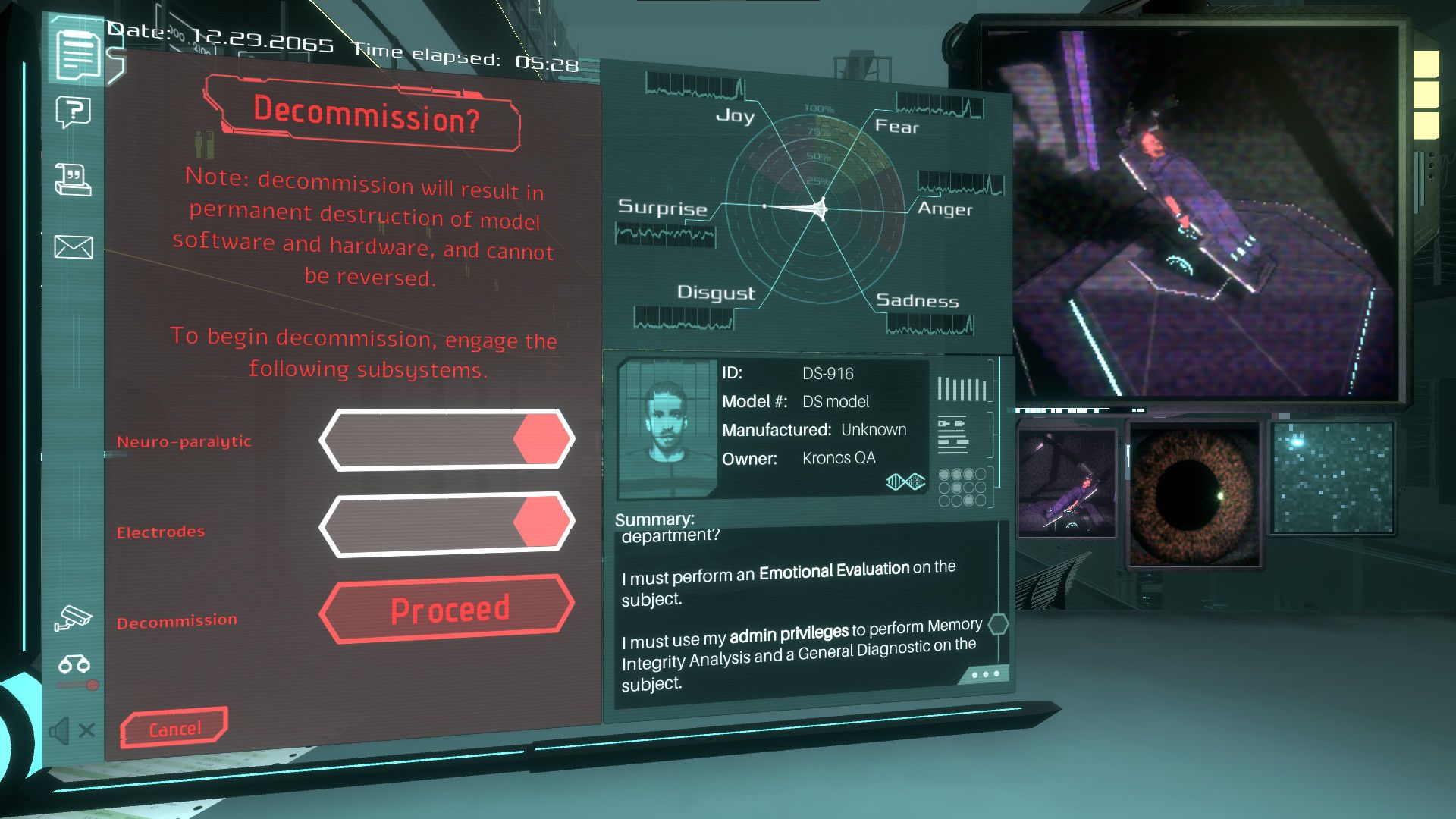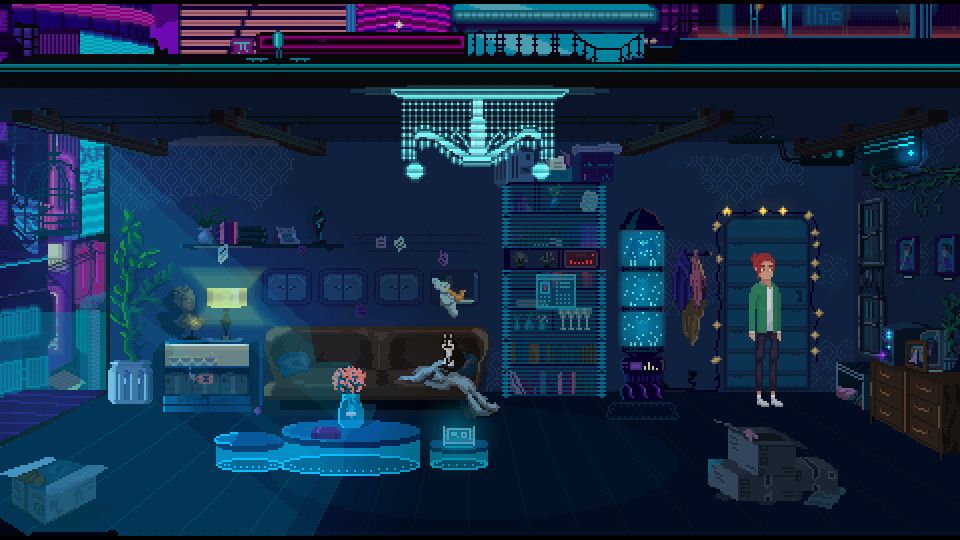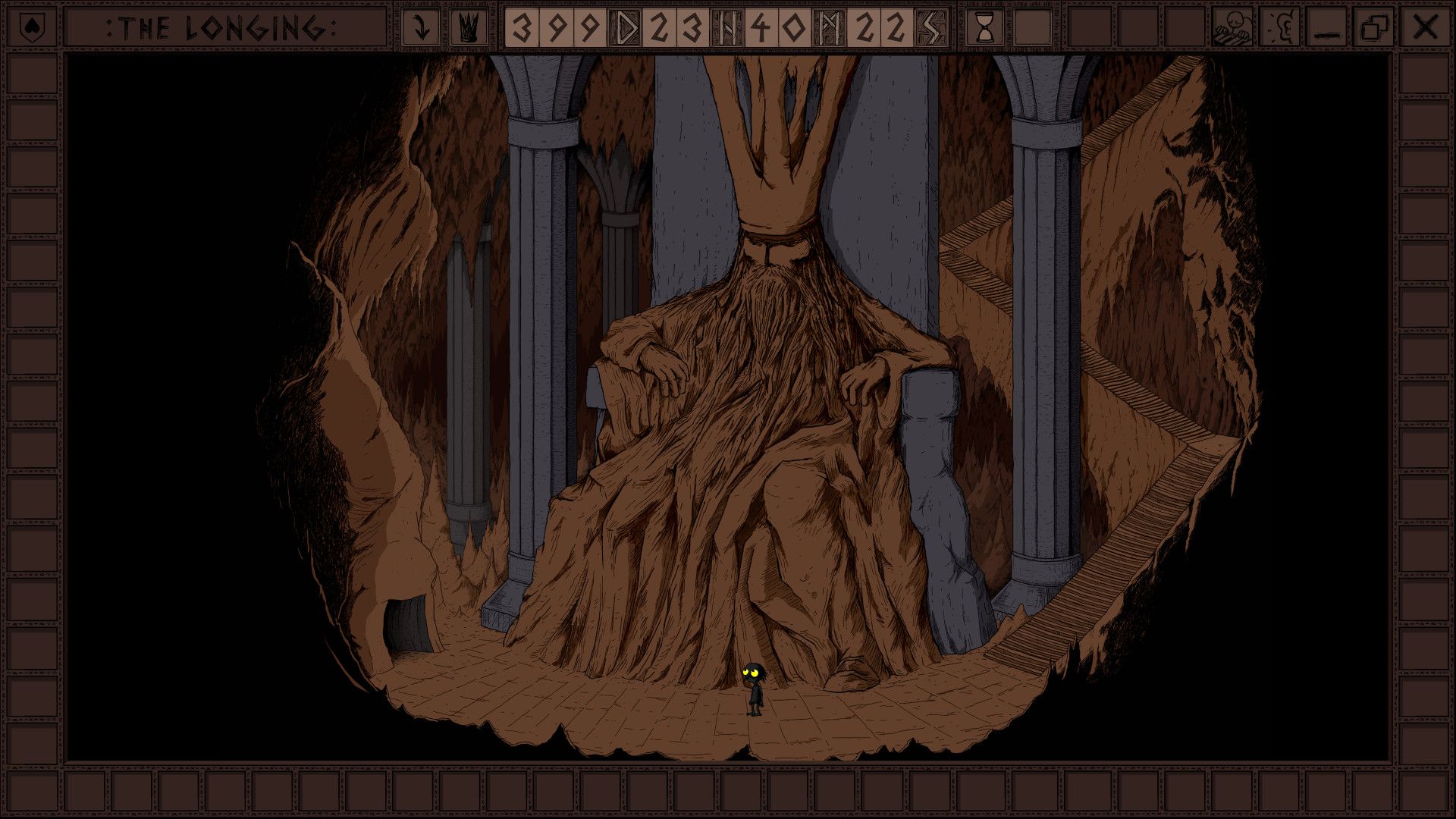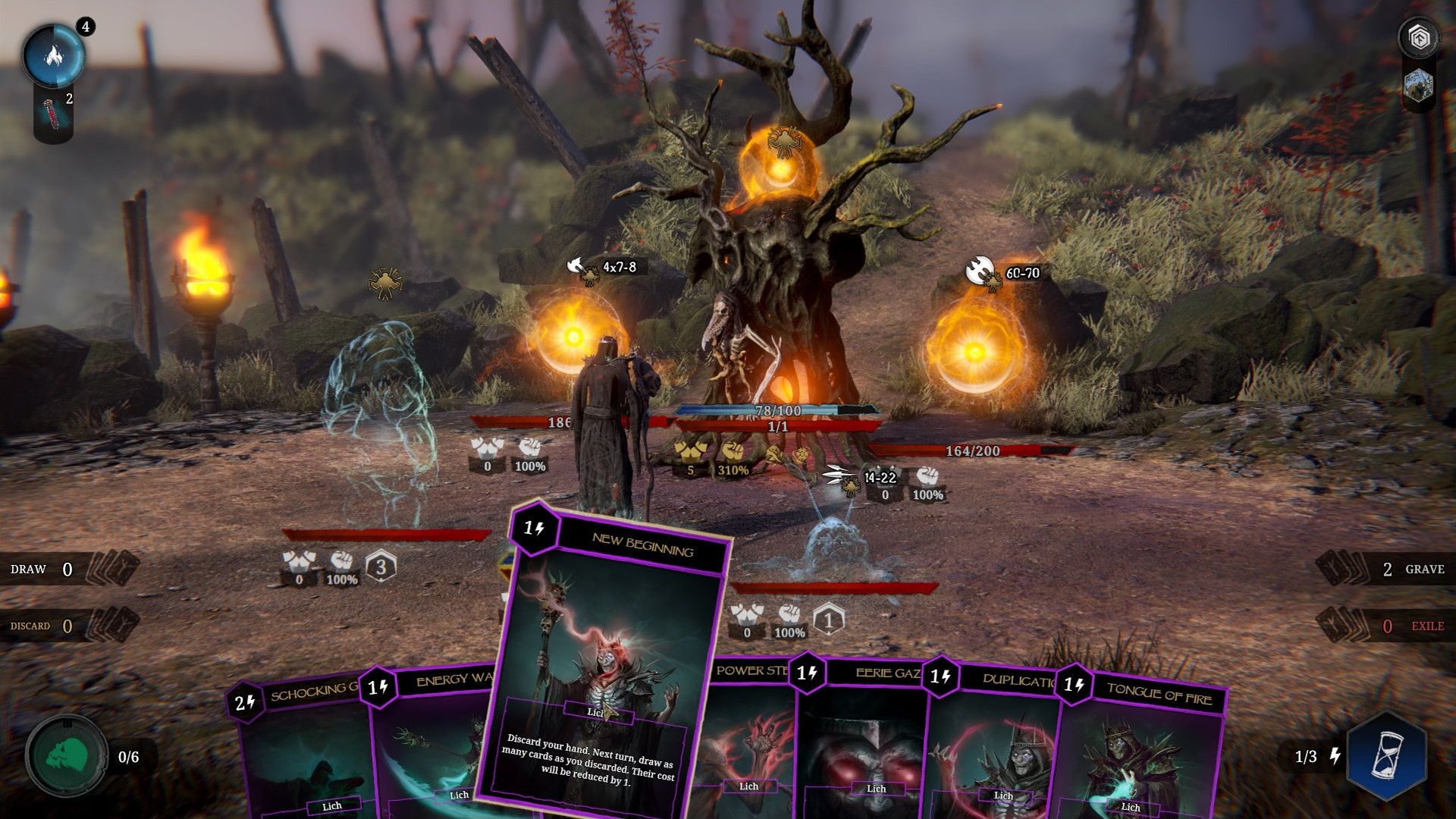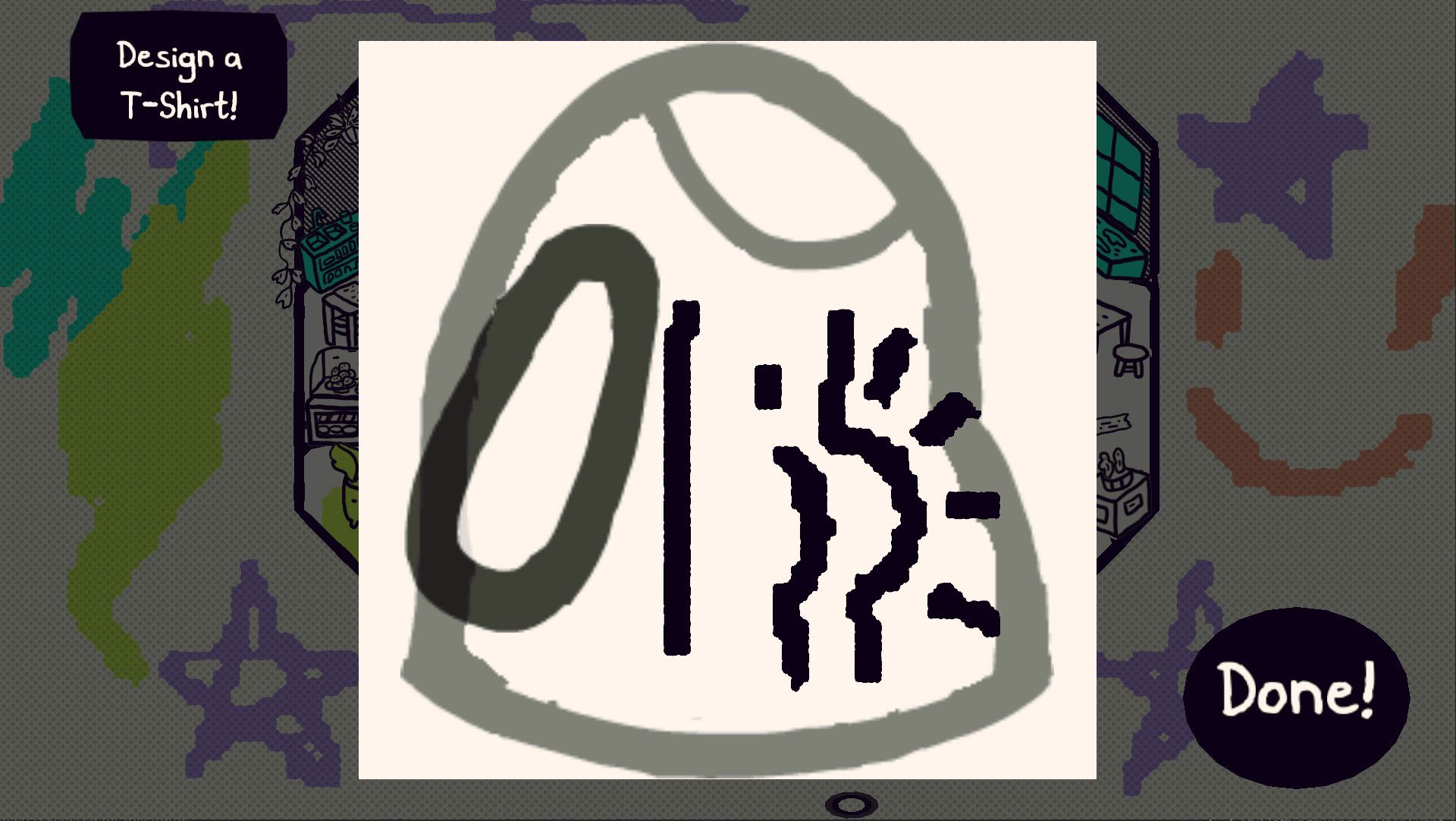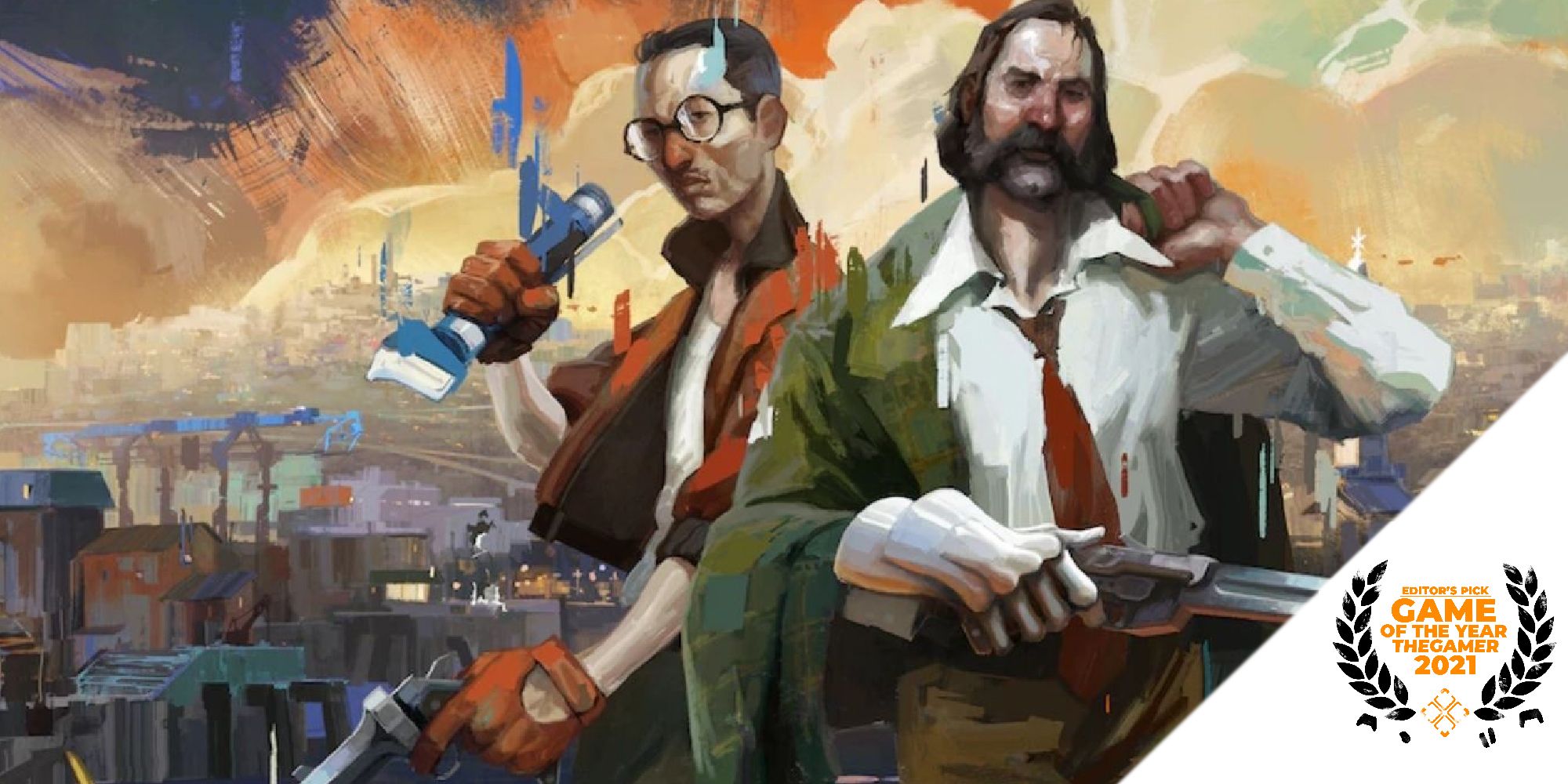Coming up with GoTY lists has always been a bit of a challenge for me. How does anyone have time to play more than ten new games a year, and then narrow that down to a simple top ten list?
Well, against all odds, I kinda managed. Here is my top ten list—and special mention to The Witcher 3, which will always be my Game of The Year, every single year.
10. The Ascent
The Ascent doesn’t quite break new grounds with all its cyberpunk flourish, even if its depiction of a high-tech but poverty-stricken cityscape is tantalising. It wields cyberpunk tropes with nary a critical thought, with Chinese, Japanese and Korean characters strewn across its billboards and on the asphalt roads for that touch of exoticism. What it does well, however, is the bombast and ferocity of its gunfights, which take place at a startlingly rapid and seamless pace. Armed with your choice of magnum—which can be anything from an assault rifle to an overwhelming rocket launcher—you will spend the bulk of your time mowing down mobs of henchmen and automatons with pizzazz. There’s something to be admired about The Ascent’s sheer single-mindedness with perfecting these firefights, and it shows in how compulsive and satisfying it is to keep raining violence down in this empty, cyberpunk city.
9. Gas Station Simulator
Just as Trevor, our community manager and self-proclaimed Twitter guy has said about his GoTY entry for Power Washing Simulator, “PSHPSHPSHPSHPSHPSHPSHPSHPSHPSHPSHPSHPSH”, Gas Station Simulator is also about the intoxicatingly meditative menial tasks you’ll be carrying out, from scrubbing the grime off your gas station floor, to picking up trash and tossing the bags into giant dumpsters. You had a brilliant idea of purchasing a derelict gas station known as the Dust Bowl, named after the fact that it’s situated right smack in the middle of a hell-forsaken desert with frequent sandstorms. On top of the sheer state of disarray you’ve found the station to be in—filled with trash and broken furniture—that also means that sand and dust are aplenty, muddy footprints from passing travellers are incessant, and your toilet will emanate a nauseating stench from inconsiderate folks. To top it all off, there’s an awful kid living nearby who’s pissed off at you for usurping his territory, so to speak, and will doodle crude drawings and inane ramblings on your walls.
But that also means that you’ll have plenty to do. On top of topping up petrol for vehicles, you’ll eventually make enough progress and stock up your humble gas station with random knick-knacks for sale. You’ll open up a garage to fix cars with broken wheels and smashed windshields for additional income. You’ll see your profit margins soar as you make bigger and grander investments, from building additional parking lots and expanding the size of your warehouse. Gas Station Simulator is a numbers game—and it’s immensely gratifying to experience.
8. Imposter Factory
Imposter Factory is ripe with sentimentality, which will either have you rolling your eyes from annoyance or leave you a crying wreck. It tells the sort of bittersweet tales that Freebird Games has long been known for, ever since its first game in the series, To The Moon, about a pair of quirky scientists whose job is to grant the dying their last wish in their dreams. But even though the game did elicit a single tear (or two) from me towards its conclusion, its grand, sweeping scenes of heartache aren’t the reason why the game is so compelling; instead, it’s the masterful way that the developer endears the characters to you in the game’s smallest scenes and interactions, from a hilarious rice bot that also serves as an emotional support bot, to an imagined murder mystery involving a cat. Even though Imposter Factory doesn’t quite pack the emotional punch of To The Moon, it’s still darn good at making you feel for its motley crew of characters.
7. Silicon Dreams
I’m just one month into my gig as TheGamer’s Feature Editor, and this will be the third time I’ve written about Silicon Dreams, a self-styled ‘cyberpunk interrogation’ game where you’ll determine the fate of several androids—as an android yourself. Working for a faceless corporation that dabbles in the construction and renting out of high-tech androids—with a variety of models that are dedicated to carrying out specific responsibilities for their human owners, from cleaning to companionship—your task is to interview androids who have been suspected of displaying deviant behaviour. There’s a lot of heart-wrenching moments and discomfort involved; the game deliberately puts you in a position of power, where you’ll need to garner the androids’ trust before deciding on their fate—and the right decision is often one you don’t want to commit to. More than that, however, it also poses thought-provoking questions about morality and humanity that will continue to linger in your head, long after the credits roll.
6. Don't Forget Me
At its heart, Don’t Forget Me is a detective game about discovering and unlocking hidden memories. You play as an amnesiac who has found herself waking up at a memory clinic in a not-so-distant cyberpunk future. Here’s a universe where memories are a precious commodity, as they are routinely manipulated and accessed by the authorities, and where its denizens resort to illegal operations to preserve their own precious, unaltered memories. Driving this tale is a word association game, which is somewhat akin, in spirit, to the FMV police procedural tale, Her Story’s sleuthing mechanic; the point is to hop onto a memory node by typing in a word specific to that memory, which will eventually lead up to a constellation of memories. But Don’t Forget Me is also a profound tale about navigating the messy affairs of being human, filled with moral quandaries and ambiguities that will leave you with more questions than answers.
5. The Longing
An idle game about waiting for your king to wake up from his slumber 400 days later, The Longing isn’t so much a game you play; rather, it’s something you experience. As a small figure only known as The Shade, what you do with this seemingly endless stretch of time, however, is up to you; you can wander down the halls aimlessly, look for spare wood and parts to build some furniture, or look for books to read. The twist is that you’ll have to wait out 400 days—in real-time—to complete the game. There are plenty of easter eggs and discoveries for players to discover, but the point is less about seeking activities and quests to complete (although you can do that if you like). Instead, it’s more about sitting down with this gnawing sense of solitude—one that can be both lonely and comforting—as the seconds gradually pass you by.
Or you can try to escape the winding caverns. That’s also an option, really; good luck looking for the exit though.
(I know the Longing was released in 2019, but the Switch version is out this year, which means this will make it in my own GOTY list. My list, my rules.)
4. Tainted Grail: Conquest
Tainted Grail is what you get when you mesh the deck-building mechanics of Slay the Spire with the infernal, tormented hellscapes of Diablo—and what a fantastic, grotesque combination that is. A turn-based RPG, every combat round begins with you picking the moves you want to execute from your hand, which could be an offensive manoeuvre or a defensive stance..What moves you choose, however, is going to be influenced by your knowledge of your enemies’ moves, and you’ll need to counter these attacks with the right set of cards. On paper this sounds straightforward enough, but this means that every loss you encounter will undoubtedly be of your own doing.
This isn’t the sort of game you’ll be breezing through, as you’ll often find yourself struggling to hold on to every slither of your miniscule life, the odds mimicking the harsh, unforgiving reality your hero has found themselves in. Exacerbating this is the thick miasma that keeps the decaying landscape around you shrouded in darkness, which is called the Wyrdness, and which will insert random cards in your play that usually have to be played within the same round. Marking your journey’s countless tragedies, too, are the lost villagers and deformed souls you’ll meet along your journey, as they share their own personal stories of loss and depravity.
3. Alan Wake Remastered
Alan Wake, the eponymous writer who’s suffering from a creative burnout, is one of the most self-absorbed and pompous video game leads in recent memory. He often speaks as if he’s addressing an invisible camera, references Stephen King way too much, and is thoroughly convinced that the universe has sent a malevolent presence to make him write more books. It all sounds like the imagined grandeurs of a burnt out writer, but this slant works in Alan Wake’s favour, as the game leans in heavily to the pulp horror that it’s so inspired by. Wake’s wife has abruptly gone missing after an argument, and Wake had found himself battling the forces of darkness himself, armed with torchlight and an assortment of hunting weapons. Like most writers, Wake isn’t much of a warrior, which means his movements are often sluggish against the onslaught of enemies, but these combat segments aren’t Alan Wake’s strongest suit anyway. Instead, it’s the skulking around the darkness, the terse plot twists and turns that Wake is trapped in, and the sheer campiness of Wake’s unfortunate circumstances—or hallucinations. Alan Wake is a bona fide classic, even if its protagonist is rightly insufferable, and it’s a piece of work that definitely stood the long test of time.
2. Chicory: A Colorful Tale
For all the game’s kaleidoscopic colours and unabashed twee, the subject matter behind Chicory is an uncharacteristically grim one: it’s one of depression, imposter syndrome, inferiority complex, and so much more. But Chicory doesn’t go about this in the abrupt manner that purposely subverts its delightful tone, or attempts to grab your attention by shoving unexpected terrors down your throat. Instead, it remains effusively earnest, painting a candid picture of mental health without sinking into cynicism. As an aspiring artist and Big Chicory Stan named Japanese (because damn it, this is what I answered when the game asked for my favourite food, without realising it was going to be my pupper’s name), you’re a wee pup who has found their world drained of colours and your hero missing from her tower, her magical paintbrush seemingly abandoned outside her room. So you did the next logical thing: pick up her brush, and splash splotches of ink everywhere. Why not?
What follows is an emotional odyssey that not only dives into the anxieties of its titular artist, but that of your own. After all, it’s hard not to see Chicory as a deeply metaphorical journey that mirrors yours—you begin the game with the entire world literally bereft of colour—as you learn to inject hues, attend art classes, and understand that true artistry is often just subject to your own expectations. It also tells you, with the warmth and affection of a trusted friend, that you’re just as deserving of patience and kindness, too.
1. Disco Elysium: The Final Cut
I have long yearned for that one RPG that would do away with unnecessary but traditional aspects of the genre, such as tedious, long drawn-out rounds of combat and gunfights, or mini games to pad out the game’s content—all while stuffing every nook and cranny of its setting and anecdotes with delicious bits of exposition and narrative flair. A little like the story-rich experience of an RPG classic like Planescape: Torment, but without the cumbersome combat that has threatened to slow its pace to a grind. In other words, more talky, less shooty in my RPGs, please.
I’ve finally found that in Disco Elysium. By far one of the most well-written games I’ve ever played, it weaves an intricate web of speculative fiction and contemporary politics that I kept coming back to. You play as a washed out alcoholic cop who wakes up with a hangover so intense that he has no memory of who he is. But work beckons, nonetheless, and he still has to solve a murder that took place in a largely worn-out city. Disco Elysium doesn’t shy away from the usual trappings of RPGs, however, instead tweaking the character leveling structure so precisely that it forms the backbone of your character’s incredibly nuanced psyche, rather than sticking to vague signifiers that other RPGs are wont to use. This is a game that you’ll need to sit down with and pay close attention to—your cop monologues a helluva lot—but every piece of dialogue is so snappishly and exquisitely written, so full of chaos, boorishness and life, that it becomes an immensely difficult game to put down. In fact, I’m playing it right now. On my Switch. In my hands.

